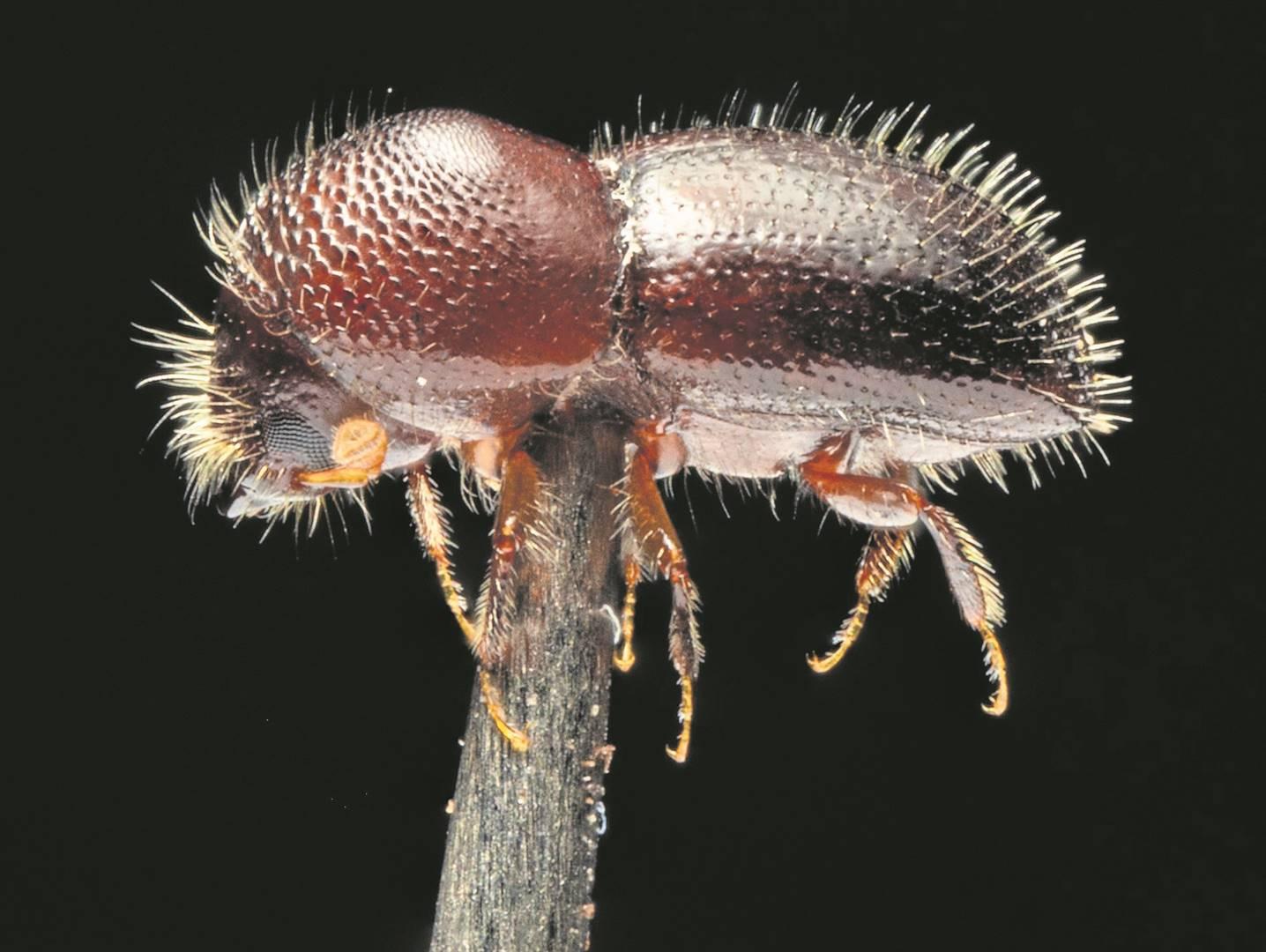Africa-Press – South-Africa. For such a tiny insect, the Polyphagous Shot Hole Borer (PSHB) sure does pack a mean economic punch.
Roughly the size of a sesame seed, the tree-killing beetle could end up costing the country hundreds of billions of rands if nothing is done to manage the infestation of PSHB.
“The potential economic impact of PSHB in South Africa amounts to a whopping R275 billion over the next 10 years and municipalities will have to bear the brunt of this cost if nothing is done to stem the tide,” reads a study published last year by the Centre of Excellence for Invasion Biology (CIB) at Stellenbosch University.
According to a slide shown during an online community meeting held on Tuesday 7 February, this fast-moving wave of destruction will have a substantial impact on the urban and natural environments, the agricultural sector, on stormwater run-off and the ecosystem.
Not to forget the damage that may be caused by falling branches to humans, property or infrastructure such as buildings, fences and power lines.
As the online meeting, hosted by the City of Cape Town, progressed it became clear that besides municipalities, private homeowners too could end up having to dig deep in their pockets if they were unlucky enough to discover a PSHB infested tree on their property.
And we are talking in the thousands here.
One meeting participant, who only went by the name of Angela, wrote in Teams messages: “Just a heads up re costs. On our property we have already spent more than R50K on removing amplifier branches/dead trees.”
Until recently confined to the Garden Route and Somerset West in the Western Cape, the beetle was discovered on a private property in Newlands three weeks ago.
Since then, numerous PSHB infestations have been recorded across Mowbray, Rosebank, Newlands and Rondebosch, with the City’s Invasive Species Unit presently receiving up to 50 phone calls of possible new cases per day.
According to the management protocol drawn up by the unit, the priority is the swift identification and removal of highly infested trees to reduce the beetle population.
The protocol requires that the wood from an infected tree be chipped on site and carefully removed under cover of heavy-duty plastic and incinerated at an appropriate site.
During the meeting, Mashudu Phalanndwa, programme manager (acting): Invasive Species, said the unit, in conjunction with the City’s Recreation and Parks and Solid Waste departments, was finalising the risk assessment on identified sites where infested material could be taken. So far, only the Gordon’s Bay Drop Off Facility has been given the green light to accept infested material.
“We are also working very closely with a company called Sustainable Heating which has facilities in Montague Gardens as well as in Claremont and the indication from this company is that they are open to take infested material from members of the public, contractors at no cost to the members of the public,” Phalanndwa said.
He added that the City would be communicating more sites for drop off in the coming weeks once risk assessments had been concluded.
At present, the City is prioritising – and paying for – the removal of infested trees in public open spaces and pathways to try and reduce the risk of the further spread of the beetle.
Responding to meeting participants’ questions, Eddie Andrews, the Deputy Mayor and Mayco member for spatial planning and environment, said if an infested tree was on private property, the cost burden would fall on the property owner.
“So you will have to dispose of it as described in the protocol. Mashudu and the team members will come and verify the tree but trees on private property would be the responsibility of the property owner,” said Andrews.
He added that, with regards to the protocol, the City was “entirely dependent on all stakeholders responding to that regard (and) where we dispose of it”.
“We won’t have our law enforcement officers necessarily on highways monitoring that and we are entirely dependent at this stage on the whole of society to assist us in monitoring that and the protocol will guide us,” said Andrews.
Henk Egberink, a meeting participant and a member of Treekeepers, expressed the opinion that for the City to rely on residents was naïve.
TreeKeepers is a citizens’ organisation that works to conserve trees in the urban forest.
“First of all, people have very limited knowledge of trees and their first reaction is to remove the trees at the cheapest costs and that is just going to cause problems with spreading the beetle.
“The second point is, you have a protocol where you say nothing about how you are going to enforce it. Again, don’t rely on the residents, they are not going to stick to the rules, they are going to take the cheapest route,” he said.
For More News And Analysis About South-Africa Follow Africa-Press






